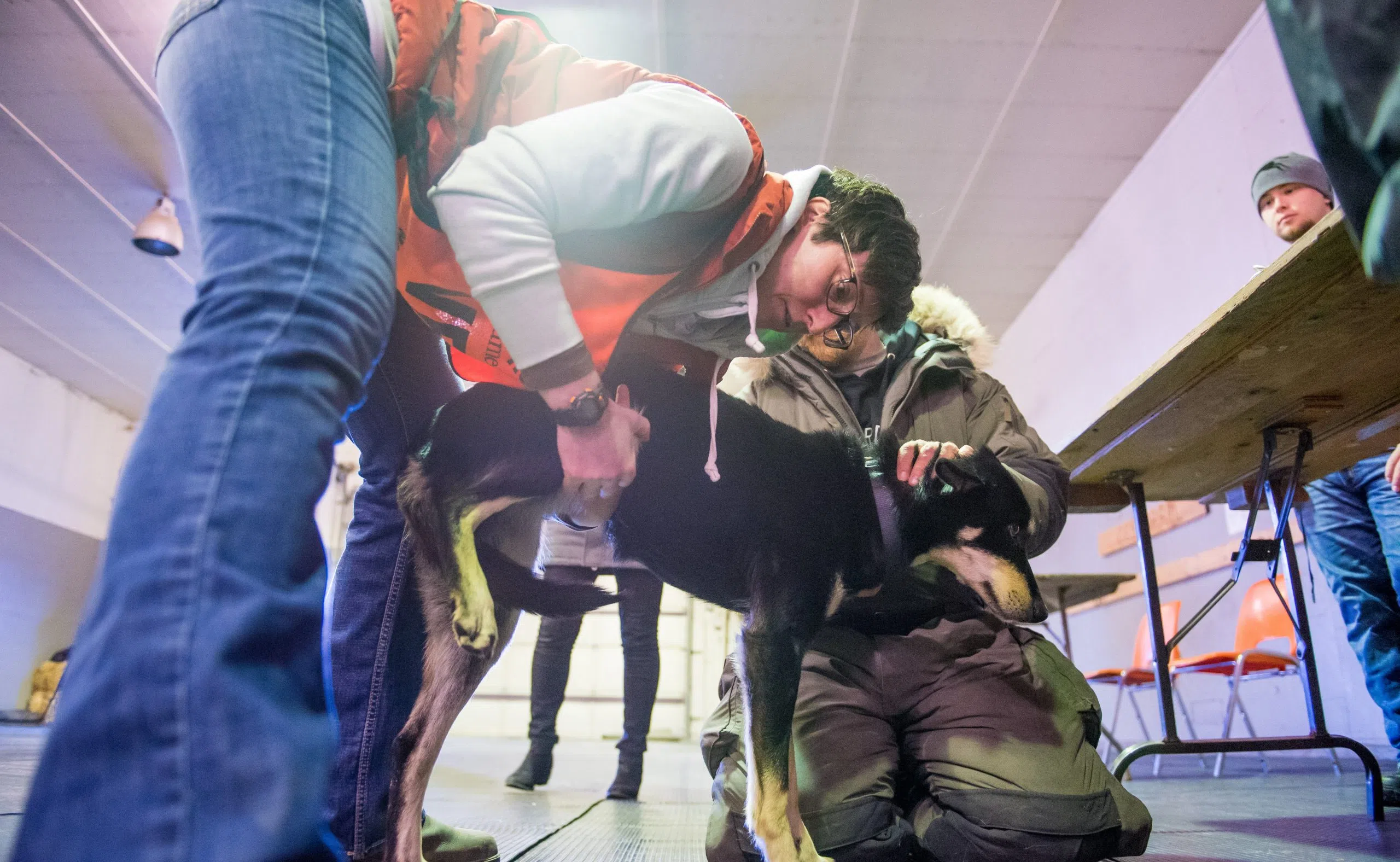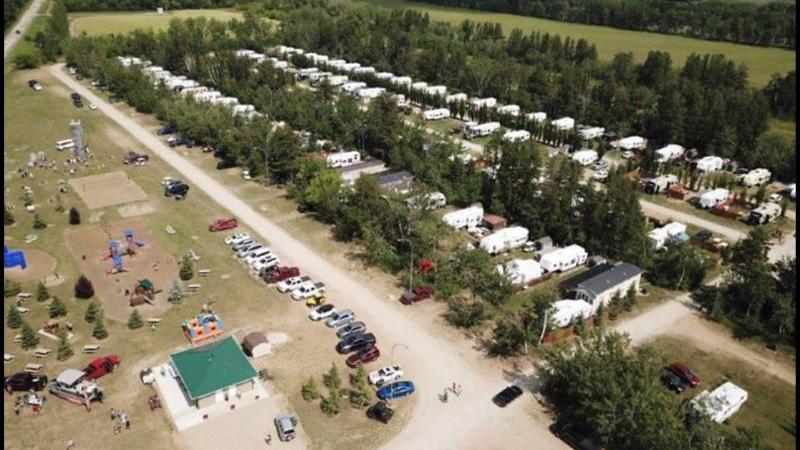
Canine checkups signal start to Canadian Challenge
Kate Robinson carefully places her hands around the torso of a dog and lets it take a few breaths. She feels around its back and neck. She then gently extends its legs back and forth with her hands around the joints.
Robinson is the head veterinarian for the Canadian Challenge sled dog race and was one of a handful of veterinarians picking up a stethoscope to examine each dog involved in the upcoming 270-mile trek during pre-race vet checkups Monday.
While the examinations may be brief compared to a typical pet visit to a clinic, they are quite in-depth and are valuable to ensure each dog is healthy and prepared to hit the trials.
“We don’t want to send anybody out that is not ready or healthy enough,” Robinson said.


